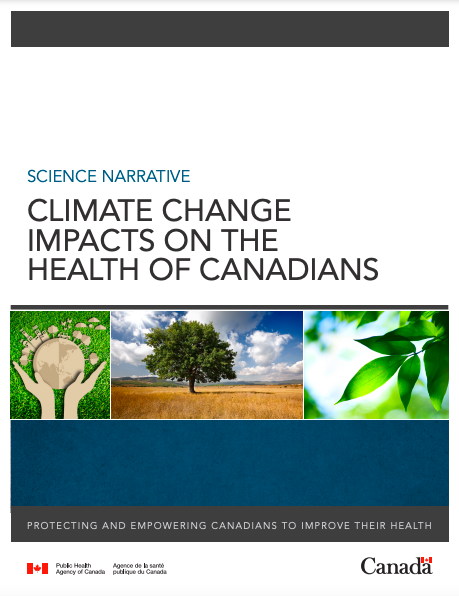Public Health Agency of Canada, 2017

Risks to the health of Canadians from climate change include direct and indirect illnesses and deaths related to poor air quality, water- and food-borne contamination, changing patterns of diseases spread by animals, ticks and insects, and extreme weather events including extreme heat events and urban heat islands. Human-generated greenhouse gas emissions (GHGs) contribute to climate change and these gas emissions derive in part from aspects of the built environment such as transportation systems and infrastructure, building construction and
operation, and land-use planning. Special challenges and impacts on northern Canadians are already being observed such as more dangerous travel (unusual changes in ice, snow and land conditions), damaged infrastructure due to permafrost melt, threats to traditional food sources, disappearance of drinking water sources and related-psychosocial and cultural impacts. Those most vulnerable are facing several compounding risks such as chronic health conditions, multiple environmental hazard exposures, the extremes of age, socio-economic deprivation, physical and/or social isolation. Sustainable
healthcare in a changing climate presents further risks to Canadians as its capacity is strained in many ways such as from the aging population, resource intensive infrastructure, professional needs and budget constraints.



